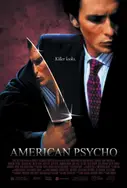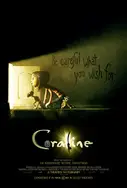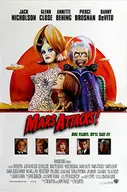Books like Harry Potter Series Box Set
Harry Potter Series Box Set
I had removed this review, which violates Article 2 of the Terms of Use:You agree not to post User Content that: (i) may create a risk of harm, loss, physical or mental injury, emotional distress, death, disability, disfigurement, or physical or mental illness to you, to any other person, or to any animal.Looking at the comment thread, it is abundantly clear that the review not only may, but indeed has caused emotional distress to several Potter fans. I would like to offer my apologies to these unfortunate people, who had every right to expect better service from Goodreads. But, despite the above, I have decided on mature consideration that I will attempt an experiment: I am reinstating the original review, hiding the dangerous and inflammatory content inside a spoiler tag. If you are a person easily offended by negative comments about Harry Potter and still decide to click it, then you have only yourself to blame. You have been warned.(view spoiler)[I got into an argument the other day with an articulate 17 year old Harry Potter fan - let's call him D - who wanted to know why I was being so nasty in my review of Deathly Hallows. What was wrong with it? I offered various structural criticisms: the ending is abrupt and unconvincing, the subplot with the Horcruxes has not been adequately foreshadowed in the earlier volumes, and the book as a whole is overlong and boring. D expressed surprise that I could call Deathly Hallows boring, when I'd given five stars to Madame Bovary and Animal Farm, both of which he considered far duller. The discussion continued for some time. In the end, I said I would write a review summarising my objections to the series as a whole. Here it is.As I said to D, it's not the books or the author. The early Potter books are cute and entertaining, and J.K. Rowling seems like a nice person - if someone's going to scoop the literary Powerball jackpot, why not her? What I very strongly object to is the way the books have been marketed. About 10 years ago, it seems to me, some clever people figured out a new marketing strategy, which they first applied to Potter; when that came to an end, the same methods were used for Twilight. Both series have enjoyed a level of success which is utterly disproportionate to their quality, and which is also unprecedented in literary history. Twilight clearly follows Potter; I've had several discussions about what preceded Potter, and the answer, everyone seems to agree, is that there was no earlier success story of this kind. Before Potter, there was no YA series of dubious merit that absolutely everyone read. I think it's uncontroversial that Potter, in terms of literary quality, is better than Twilight, but Twilight has been even more successful. At one point, the four volumes occupied the top four spots in the New York Times bestseller list. On Goodreads, nearly half of the top 50 reviews are of Twilight books. This is an absurd and unnatural state of affairs. Even though Twilight may not be quite as bad as is sometimes made out - I'm one of many people who have tried to defend it - there's no way it deserves this level of attention.So why is everyone reading it, and why, before that, was everyone reading Potter? As I said, I think it's primarily about the marketing, though I wish I was more sure about the details. Here, at any rate, are some thoughts. First, the publishers are aggressively using economies of scale and deals with third parties. They print very large numbers of copies, and they work together with movie studios, game companies and merchandisers to cross-promote them. I think it's particularly important that a large proportion of the books are sold, not at bookstores, but at normal supermarkets. It's well known that the cover price is usually marked down to the point where the supermarket is not in fact making any profit; they have discovered that they can successfully treat it as a loss leader. This is causing great pain to independent bookstores. Some of them, I have read, have adopted the desperate expedient of buying copies at supermarkets and then reselling them. Second, let's look at the content and style. Even though Potter and Twilight are fairly different in some ways, they also have many strong similarities. Above all, they are extremely easy to read, at every level. The vocabulary is unchallenging; the sentences are short and simple; most characters are one-dimensional stereotypes; the story is uncomplicatedly plot-driven; there are few references to other works of literature. You can read these books if you're tired, if you're sleepy, if you have poor reading skills, if you've never read anything else. They consequently have a very large potential audience.Third, they describe a comforting, emasculated world in which most of the things that make our own world so difficult and unpleasant have been removed. Most strikingly, there is no sex; in Harry Potter, which is supposed to be about fairly normal teens, no one masturbates, no girls get pregnant, none of them are labelled sluts because they've had sex with more than one boy (sometimes one is enough, for that matter), no one gets their heart broken and drops out of school or starts taking drugs as a result, no one is stuck in a dead-end relationship that they wish they could escape from, but can't. The worst thing that happens in either series is the sequence in New Moon where Edward temporarily leaves Bella. Meyer notoriously doesn't describe Bella's feelings at all, but just leaves several pages blank. Once, in fact not so long ago, most adults would have been embarrassed to be seen reading YA literature of this kind; to start with, the comforting word "YA" hadn't been invented yet, and they would have been reading children's books. Somehow, there's been a shift in standards. You look around you on a bus to see what people are reading, and you can be pretty sure you'll see at least a couple of people over 20 engrossed in Potter or Twilight. It's odd that this has happened, and I wish I understood why.In conclusion, I couldn't help being struck by the two books D chose to contrast against Potter. D, Madame Bovary is going to outlast both of these authors because Emma is a real person who experiences the crazy and contradictory emotions that real people experience when they are very unhappy, and as a result she behaves in a crazy and contradictory way; also, Flaubert, unlike Rowling and Meyer, took a great deal of trouble over his prose, and created some of the most beautiful and ironic passages in world literature. There aren't many books I'd call masterpieces, but this is one of them. And finally, Animal Farm is indeed an allegory of the Russian Revolution. More importantly, though, it's about how smart, unscrupulous people manipulate trusting, weak people. Tens of millions of people are reading Potter and Twilight, not because the books are well-written or interesting, but because the readers have been manipulated into buying them by the Napoleons and Squealers of this world. That's what I'm objecting to. Think about it for a moment. (hide spoiler)]


































